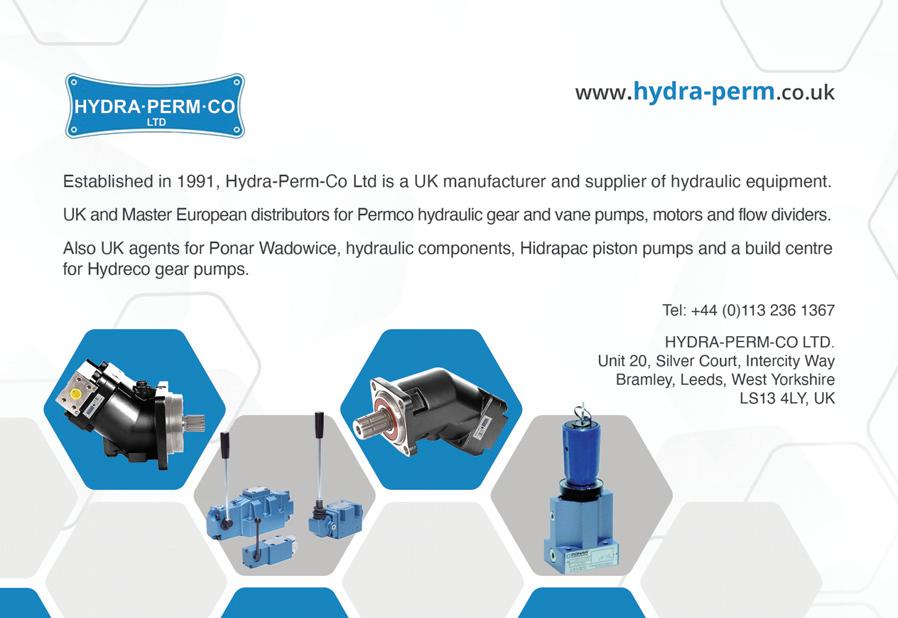
23 minute read
dWilliams Managing Directo
from S02
Turning the cogs
Since becoming a subsidiary of Stürtz, Stuga has set out goals for diversification and expansion of product capabilities. Stuga are already selling and servicing the entire portfolio of Stürtz equipment, including welding and corner cleaning, logistics and handling solutions.
Advertisement
This purchase also benefits existing Stürtz customers – there is already a large instal lbase in the UK market – giving them access to a vast array of first-class engineers who are based across the UK and offer the very best machine maintenance. “We have 11 engineers,” Mr Williams said, “who carry out planned maintenance and breakdown repairs.
“Having this structure in place is really important for Stuga because, as they say, a sales representative can sell the first machine, but the reliability of the product and the service support provided is what keeps customers coming back. Previously, Stürtz didn’t have reliable UK representation, so the Stuga acquisition helps tackle this critical challenge.”
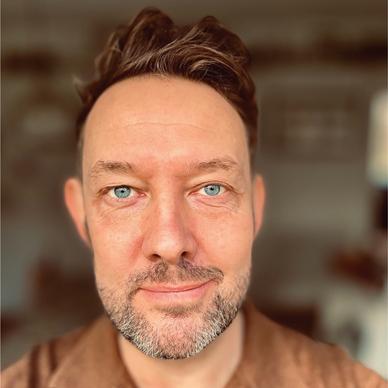
As part of its investment into expansion, Stuga is also adding new members to the workforce. Mr Williams is bringing an array of business strategies to the company which will set about delivering sustainable and profitable growth – including the immediate objective to build a sales and technical team that can sell and support the range of Stuga and Stürtz products.
The company hopes to continue working with its long-standing suppliers who are local to the business, Stuga has maintained these relationships since the 1990s, regarding them as critical.
“Stuga has always designed its own parts, but the manufacturing of those –the metal parts anyway – has always been completed by our local supply chain,” Mr Williams concluded. “We like the fact that we have these great relationships with fabricators around the Great Yarmouth area.
“Gareth always liked the idea of working within the community and helping keep businesses alive and afloat, especially during the 90’s when the automotive industry was collapsing. It works both ways, when Gareth approached the local manufacturing companies, they threw their arms around the business and really supported us too, they have ever since.”
Hydra-Perm-Co Ltd is a UK manufacturer and supplier of hydraulic equipment. A large scope of the company’s operations is as distributor for Permco Inc, a US-based hydraulic manufacturer. The two enterprises work closely together, Hydra-Perm-Co being the sole UK manufacturer and European distributor of Permco cast iron gear pumps, motors and flow dividers. Debbie Patrickson, Managing Director, explained to Hannah Barnett how her family’s firm operates so fluidly.
ASPermco’s distributor for four decades, Hydra-Perm-Co has an extensive knowledge of the US company’s products for mobile or industrial applications. The two businesses work synergistically together. The Permco assemblies are manufactured at Hydra-Perm-Co in Leeds for distribution all over the world.
Hydra-Perm-Co’s Managing Director Debbie Patrickson has been at the company since establishing it alongside her parents in 1991.
A family affair
Hydra-Perm-Co may have been founded in 1991, but its relationship with Permco stretches back even further.
“My father, Ken Smith, started his business, K.S. Hydraulics in 1974,” Debbie explained, “and he became a Permco distributor in 1982”. So, by 2022, the family have been distributors for 40 years.
Hydra-Perm-Co initially started out supplying Permco products but has increased its range since then. The company is now UK agent for PONAR Wadowice, a Polish company who offers valve components across various sectors. Additionally, they are distributors for Hydreco Hydraulics, and more recently became the UK distributor for Hidrapac, a Turkish manufacturer of piston pumps and motors.
Good relationships with many, longstanding equipment suppliers means Hydra-Perm-Co can offer customers a variety of other hydraulic compon-ents too.
Small sustainable solutions
The company may only be small, but Hydra-Perm-Co operates efficiently.
“We have new customers coming on board all of the time,” Debbie said: “I believe we have a good reputation throughout the industry. Manufacturing from kit-form means we are very flexible as well. So, we're not dependant on one particular design; we can produce different variants.
“We can build an assembly in a few hours if the parts are in stock. Some companies are quoting weeks, months and unbelievably , even years. If we have the stock, and the customer needs it quickly, we can do it.
“Having an experienced team, including sales, machining, production and despatch makes the company stand out from its competitors”
Debbie identified other key milestones in the development of Hydra-Perm-Co. One is being awarded the ISO 9001:2015 quality standard, another is having ATEX approval on Permco products, which means they can be used in explosive atmospheres. This sort of accreditation has helped Hydra-Perm-Co contribute to its sustainability.
Other areas of sustainability have been to reduce our energy consumption by installing LED lights and motion sensors within the business.
“We’ve invested in oil contamination control equipment to keep the oil in our test rigs clean,” Debbie continued. “This reduces our waste, as we continuously recycle the oil. We recycle around 80% of our packaging, and where we need to buy new, we only use environmentally friendly products”.
Expansion and growth
The company employs just 11 people currently, Debbie included. She acknowledged that it has been difficult to recruit staff since Covid. Not that this has impacted on the company’s output or productivity; turnover remains healthy. The dedication of all employees is a crucial part of the business.
According to Debbie, the turnover has been increasing at a steady annual rate and the company expects it to reach around £1.5 million at the end of the next tax year.
A good supply of parts remains crucial for an operation like Hydra-Perm-Co and a key facet in the company’s vision for continued growth. “We want to increase stock so we can offer a quick turnaround to meet customer demands,” Debbie explained. “We hope to invest in a new software system too, to streamline our processes.”
Debbie revealed that she wants these various investments to contribute to an expansion of sales of the Permco products across Europe for Hydra-Perm-Co: “We just want to get our name out there as much as possible. Because of Covid, we've not been travelling, but hopefully we can pick that up in 2023. Now things are relaxed with restrictions, we can look for new customers: maybe even find new distributors that we can help to set up in Europe as manufacturing centres. That’s something I've got in mind.”
The Managing Director emphasised Hydra-Perm-Co’s customer service when reflecting on what makes the company |so good at what they do.
“What keeps us going is the repeat orders from customers,” she said. “We thrive on that. It's nice to get referrals and testimonials. We’re clearly doing something right. Customers keep coming back to us. It’s nice to speak to them and discuss new applications too. Hopefully, we can grow the business with existing customers and new ones.”
The dependability and efficiency of HydraPerm-Co is difficult to contend, with its 40 years working alongside Permco evidence enough of the company’s dominance as a distributor of hydraulic equipment. It may be a small-scale operation, but its team is clearly infused with knowledge and experience, which takes priority over all else.
When interviewed, Debbie was asked what motivated her to come into work every day and she replied: “Well as it’s still a very male dominated industry, I am faced almost daily with a hesitant caller who is reluctant to discuss their enquiry as they expect me to pass them on to a male colleague.
“However, it’s quite satisfying that I have an extensive technical knowledge and can hold my own.”
UK-based Cadillac Plastic Limited is a supplier of highperformance plastic films and filmic adhesives to various industry sectors. With customers in the UK and Europe, and over 40 years of experience, the company leads the way in providing the most technologically advanced and appropriate solutions.
General Manager Simon Jones shared the latest developments and the company’s plans for further growth. Report by Phil Nicholls.
Earlier this year, Cadillac Plastic became the exclusive distributor within the UK and Eire for the Autotex® and Autoflex® hardcoated industrial films from MacDermid Autotype. As so many industries bounce back from the Covid pandemic, this is a welcome development for Cadillac Plastic and underlines the potential for growth within the sector.
“We were very pleased to be appointed exclusive converter and distributor of the MacDermid Autotype range,” explained General Manager Simon Jones, “because it helps us reinforce our position as a ‘one-stop shop’ for our customers. The MacDermid
Autotype range adds a wide variety of materials to our already comprehensive portfolio.”
Cadillac Plastic endured the Covid pandemic thanks to a strong footing in many sectors. When demand fell from one set of customers, another area experienced growth. These fluctuations balanced out, allowing Cadillac Plastic to continue trading during the pandemic and emerge ready to embrace new opportunities, such as this agreement with MacDermid Autotype.
Plastics portfolio
The experienced, 18-strong team operates its warehouse and production facilities in Swindon, Southwest England. Cadillac
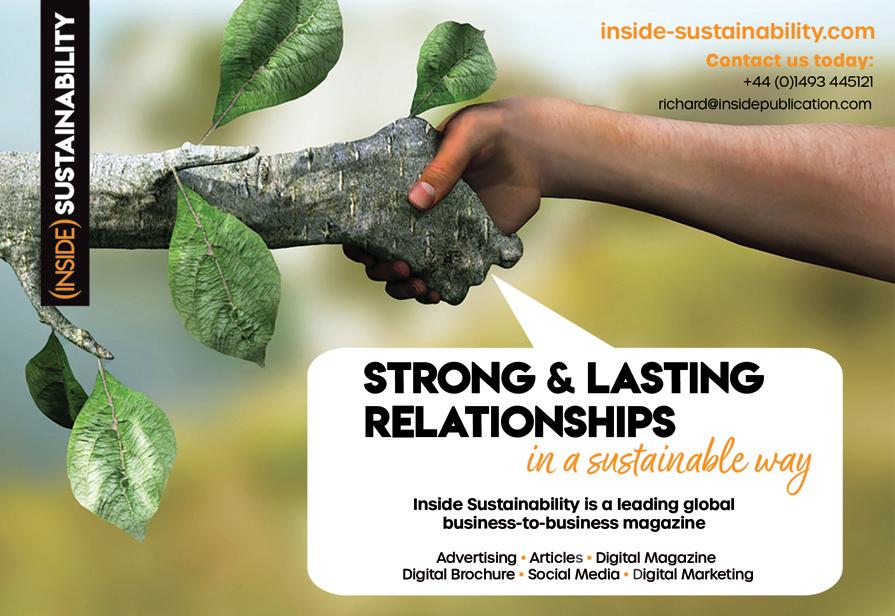
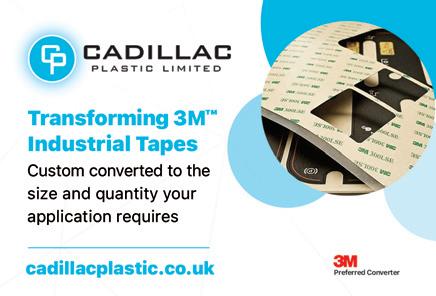
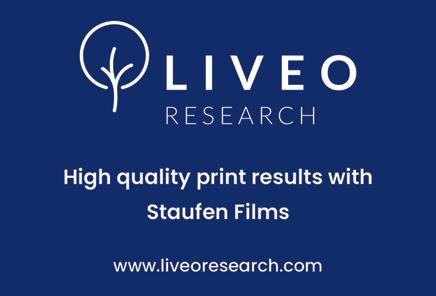

Plastic’s comprehensive, in-house conversion capabilities cater for individual sheeting and slitting requirements at no extra cost, enabling customers to save money through the elimination of waste. The company also offers bespoke product solutions, including die-cutting and laminating.“We have a
Cadillac Plastic offers:
• Sabic Lexan TM polycarbonate films
• DuPont Teijin Polyester films
• 3M TM Adhesive films and tapes
• MacDermid Autotype Range of polyester and polycarbonate films
• DuPont Tyvek®
• Nitto Adhesive films and tapes strong footing in the aerospace sector,” Mr Jones said, “which is recovering with the relaxation of travel restrictions. Materials required in the manufacture of aircraft are usually specialist, high-value materials such as Lexan Flame Retardant Polycarbonates and Jet-Mirror.
Major brands including Folex, Toray, Avery Dennison, Transcontinental and Kimoto.
Also, Cadco, TeknekTM clean machines, BoltaronTM , Cadco Jet-MirrorTM , surface protection films and release liners.
“The largest sector we currently supply continues to be the industrial print market, which feeds into many other sectors and utilises a wide range of materials. Having an extensive portfolio of products is essential and allows us to provide our customers with everything they need.”
The bespoke provision of high-performance plastic films and adhesive products is a critical aspect of Cadillac Plastic’s customer service. The in-house conversion facilities enable the company to convert master rolls of film into precisely cut pieces matching the client’s exact specifications.
Growth trend
The extensive range of films and adhesives at Cadillac Plastic delivered strong growth through 2022. This trend is perfectly illustrated by the recent agreement with MacDermid Autotype.
“A large number of our customers who already used these materials from MacDermid Autotype now benefit from our bespoke services,” said Mr Jones.
“This opportunity has also brought new business to Cadillac Plastic, allowing us to start building relationships with an expanded customer base.
“Our customers can expect shorter lead times when ordering from Cadillac Plastic, rather than direct from the manufacturer, because we order stock well in advance, based on expected forecasts. We are better placed in the supply chain to work with customers to identify their needs and convert their specifications into new business. Cadillac Plastic works closely with our key suppliers to give customers technical support, especially on projects where the material has rigorous technical specifications.”
This growth trend is set to continue at Cadillac Plastic, according to Mr Jones: “We will upgrade our central business system in early 2023. Focusing on improving our digital marketing, we are also upgrading our CRM system so we can further build relationships with our customers. To support our forecasted business growth, we are investing in new storage areas and facilities to accommodate our increasing product range.”
Strong relationships
Cadillac Plastic’s reputation is based on more than just an extensive portfolio of films and adhesives. “With over 4 decades in the high-performance films and adhesives industry, we are confident that our collective knowledge and experience qualifies us as trusted advisors, and allows us to meet our customers’ needs,” explained Mr Jones. “Our experienced team has the expertise to assist our customers in finding the most appropriate solution to their needs, and by providing technical support services which are second to none.
“We work in partnership with some of the industry’s biggest brands such as Sabic, DuPont, 3M, MacDermid and Nitto, along with many others.
Cadillac Plastic provides a source where businesses can buy all their requirements in one place.”
A strong relationship with suppliers plays a huge role in the success of Cadillac Plastic. Maintaining close communication with manufacturer representatives and suppliers enables the company to keep customers up to date with material availability, new products and product changes.
“We recently took some customers to the 3M research and development site, which was a fascinating visit,” Mr Jones said. “Because of our close relationship with major brands, we have access to the best advice and product information for our customers.”
Sustainable future
Sustainability has always been part of Cadillac Plastic’s culture, demonstrated by its commitment to upholding the ISO 14001 Environmental Standard since 2006. “We operate in a responsible and ethical way,” continued Mr Jones. “We are acutely aware of environmental issues and work hard to reduce the environmental impact of our business.
“We are committed to waste reduction, and monitor our waste output, recycling and energy consumption. Cadillac Plastic always strives to meet, or exceed, environmental regulations and targets. This year, we began recycling more types of waste than ever before, which is another positive move forward.”
Recent events have brought challenges across the industry, notably with regards to the supply of raw materials, but Cadillac Plastic remains optimistic. The experienced team continue to offer high levels of service and the wide range of products that its customers expect.
In conjunction with the expansion into offering the MacDermid Autotype range, Cadillac Plastic plans to consolidate its position as a one-stop shop for customers. The company is continually assessing ways to improve both its facility and services, to deliver expert advice and quality solutions to customers – where excellent customer service is paramount.
“Cadillac Plastic is the perfect SME,” concluded Mr Jones, “and I feel privileged to be heading a fantastic, highly experienced and motivated team. Every member of staff makes a genuine difference to the business, creating a real buzz and ‘can-do’ attitude within the workplace.
“Many of our customers rate Cadillac Plastic as their best supplier, which brings a great sense of pride, both personally and for the entire team.” n
It seems appropriate that the Ittihad Paper Mill (IPM) started out as a ‘greenfield project.’ That means a business built from scratch, without nearby competitors; a blank sheet of paper, in other words. Slowly but steadily, IPM is making its mark, through innovation, a commitment to sustainable production and a coherent shared vision. Rabih Elassadi, Operations Director at the mill, let Hannah Barnett in on the details.
There were sceptics who did not believe IPM would work. Establishing facilities in 2016 at a 250,000 square metre site in Abu Dhabi, IPM is the first printing and writing paper production facility in the Gulf Cooperation Council (GCC).
Catering to the growing regional demand for paper products, it also serves the international markets, offering a full product range across grammages, shades and sizes.
“The main idea behind it was to produce locally, trade internationally, and try to diversify the local produce of the country,” said Operations Director Rabih Elassadi. “The UAE has a world-class infrastructure and an integrated transport and utilities network: We simply wanted to utilise these infrastructures, provided by the UAE government, and reach markets worldwide. For many people who are not familiar with the UAE, they think we were crazy for thinking of making paper in the middle of the desert.”
A challenging start
The company’s inception was financed by four banks, along with external funds from the EU. This gave credibility to the project, recalled Mr Elassadi: “They checked our concept model, and the strategy that we have. And it was verified that the concept works well. When we started, the concept was ready to prove itself.”
IPM could not have foreseen what was around the corner after it finished commissioning test trials in July 2019. The mill was poised to begin commercial production in January 2020.
“That was the worst time for us to start because in March 2020 the pandemic hit,” recalled Mr Elassadi. “It was a complete struggle, opening such a facility with all sorts of restrictions especially in the supply chain.”
Of course, it was not merely the restrictions themselves, the demand for paper also dried up overnight. Mr Elassadi went on to describe the landscape at that time: “Offices were closed, universities, schools, everything was closed. There was a huge struggle on paper demand worldwide. The world’s supply chain was interrupted. There were lots of challenges.”
The long-term impact of the pandemic, however, has proved to be less a fatal wound, more a papercut. Despite the early turbulence, the company is doing well. IPM’s market share is about 35 –40% in the region. “We have reached over 70 countries since we started,” revealed Mr Elassadi. “This year, we expect a total turnover of around $300 million. This is even a conservative estimate, but it will be around that, dependent on the price of paper.” Fluctuation in the currency exchange is one of the primary challenges these days, he added.
Sustainable solutions
How have they done it? The pandemic aside, the question of ‘making paper in the desert’ still loomed. One of the key elements of the company’s success lies in a sincere and far -reaching commitment to sustainability.
“Paper is always seen as the business that is destroying woods and reducing forests around the globe. This is misleading,” Mr Elassadi said. “We source our raw material only from sustainable resources from suppliers who are FSC certified.”
The paper produced by IPM is designated ‘wood free’, made from pulp sourced from sustainable forests, strictly in compliance with global environmental standards. It is the utilisation of this pulp that gives the company confidence in its environmental credentials.
As Mr Elassadi explained, a huge number of trees are planted in replacement of those that go into the pulp: “People who are into the production of the wood pulp have to make sure that they will have more trees later on. So that's why you will see the forest is increasing rather than decreasing because the industry must sustain it. Trees are a crop. It's like potatoes; farmers grow potatoes, they harvest potatoes, and then they plant more potatoes, otherwise the farm will be gone. Basically, paper is the same thing.”
A conscientious future
Being one of the first paper mills established in an area with a water deficit, IPM has a responsibility to conserve resources. But it wants to do more: this is where the effluent treatment plant will come in. Efficient water usage, combined with effective effluent treatment plants, ensure the company is using less water and recycling as much of it as possible.

Mr Elassadi elaborated: “We are now in the process of investing in recycling 60-70% of the water that's the discharge from the plant. This is essential for us because water is a scarce resource in our area. We are in the final stages of securing the funding for the effluent plant. Execution should happen very soon. We are negotiating the terms.”
Another path the company look to be heading down is in the field of automation and digitisation. Even though, as Mr Elassadi remarked, ‘paper is paper’ and the end product will be essentially the same, the process can be streamlined to be more efficient and cost effective.
The embracing of automation is especially beneficial when acknowledging the fact that IPM is the only printing and writing uncoated woodfree mill in the GCC and is the largest in the entire MENA area. “There are zero producers in the region,” Mr Elassadi stated. “The companies that are here are basically people who get the paper and cut the paper, but they don't produce it. We refer to them as converters.”
Perfect partners
Like any successful business, another key element to its success lies in the network of suppliers, or ‘partners’. “For me they are partners not suppliers” stressed Mr Elassadi. “We have Valmet as the paper machine supplier and BW Papersystems in our converting facility, where we cut the paper. There is also Solenis, our chemical supplier who is responsible for the overall chemistry at our plants.”
Mr Elassadi painted a picture of a mutually beneficial and synergistic partnership, based on striving to be better: “We don't try to change those guys, but we always like to challenge them.”
He described the rest of IPM’s staff in similar terms: “We have a very experienced and diverse team. We have people from all over the globe, all with the same passion for producing paper. This is what brings us together, irrelevant of colour, irrelevant of background, or religion. We all work together with the same respect. And we are working towards creating our own success story.” IPM may have started with a blank sheet of paper, but the company is now firmly making its mark.
AstenJohnson has a rich history within the paper industry as a global textile manufacturer. With the acquisition of Eagle Nonwovens and Foss Manufacturing, the company continues to diversify and strengthen its reputation in the speciality fabrics industry. Global Sustainability Manager Anaëlle Roemans and Global Marketing Manager Daniel Hédou discussed this evolution, as well as the company’s goals for sustainability, in conversation with Imogen Ward.
IN1999, AstenJohnson formed from the deeply embedded roots of two varied companies with mutual goals. Dating back to 1790, JWI Group brought world class expertise in wire works and drainage equipment. Similarly, Asten, founded in 1882, entered the merger with world class knowledge in dryer fabrics. This wealth of experience would prove to be fundamental for maintaining AstenJohnson’s leadership in the market.
“In 2014, we entered the nonwovens market with the acquisition of Eagle Nonwovens and soon after, in 2017, of Foss Manufacturing,” Global Marketing Manager Daniel Hédou said. “Those additions demonstrated dynamic organic growth and have lead to our expansion with a new nonwoven greenfield site in Waco, Texas.”
In 2022, AstenJohnson announced the creation of a new division: AJ Nonwovens. AJ Nonwovens combines Eagle Nonwovens
Astenjohnson I Profile
in St. Louis, Missouri, Foss Performance Materials in Hampton, New Hampshire, and the new Waco site as one division.
Working united, AstenJohnson has maintained its place in the market by diversifying its specialties.
Diversity in products
With its relentless focus on innovation, AstenJohnson offers a broad and differentiated catalogue of products, all of which directly impact end-users’ consumption of energy and resources.
The AccuFlowTM S2/E2 Press Fabric (exclusive to AstenJohnson) brilliantly exemplifies the company’s endless abilities. The product’s unique single-seam configuration and highly sophisticated base fabric construction is comprised of two layered modules angled upon each other. This structure increases robustness and durability, which translates to higher water removal capacity, reducing energy used to dry the paper, and longer life which lowers landfill use.
AstenJohnson’s innovations create products that last longer, are more efficient and require less energy. In addition, the expert knowledge AJ field associates share with their customers helps improve outcomes from fabric life to the quality of the end product.
Safety focus
To ensure safety across the company, AstenJohnson implemented a Zero Accident Culture (ZAC) safety system. All associates are trained in workplace safety based on 3 core values: accountability, commitment, and trust. Complemented with AstenJohnson’s Lean 6S system, safety and efficiency have improved business processes while reducing the risk of safety incidents occurring.
“We are ahead of the curve when it comes to safety and safety awareness,” Mr Hédou said. “We used to encourage our sites to pursue local strategies. This changed in 2016, when we involved the overall corporate culture to improve the safety of every site. We continue to accelerate the sharing of these practices so that we can reach our goal of zero accidents.”
Implementing Initiatives
Making a difference, AstenJohnson has encouraged its offices worldwide to partake in various green initiatives. Starting in 2021, its office in Eupen, Belgium, has offered its associates a bicycle leasing programme with different types of bikes available. The office has an impressive bicycle parking lot – featuring solar panelled charging stations for electric bikes and secure bike housing for associate’s peace of mind.
The site in Clinton, South Carolina, has also worked tirelessly to improve its ecooutput. In 2016, the facility set goals to eliminate its air emissions. This was successfully managed a year later and resulted in the site no longer requiring an air permit.
In China, AstenJohnson Suzhou has implemented a recycling programme for scrap from its monofilament plastic. AstenJohnson sends this waste to a local partner to process the leftover plastic in a pelletiser machine. These plastic pellets are used to produce new items, creating a continuous lifecycle for AstenJohnson scrap material.
AJ Nonwovens in Hampton, New Hampshire, uses a large portion of PET resin from recycled beverage bottles to make the fiber used in their products. Since 2016, AJ Nonwovens has consumed 190 million pounds of resin from bottles.
Setting a sustainable example
As an innovator within the paper & pulp and nonwoven industries, AstenJohnson is determined to lead the improvements needed for a greener future. Looking inward to its business processes, the company works hard to accomplish several sustainability-based goals.
AstenJohnson hopes its efforts will help create a greener planet. “In 2020 we developed the Sustainable Procurement Policy,” Global Sustainability Manager Anaëlle Roemans said. “The next step was to develop a supplier risk assessment, based on their geographical location, the annual spend level, and their business sector. This allows us to assess our supply chain and ensure that the values of our suppliers match our own.
“Based upon the risk assessment, we communicated with our suppliers our sustainable partner expectations. This is an important step in making our supply chain more sustainable. We really believe sustainable progress should be done through the entire value chain.”
The company recently received the EcoVadis Bronze Medal for the second consecutive year. This award recognises AstenJohnson’s Corporate Social Responsibility (CSR) sustainability performance. EcoVadis uses categories including environment, labour and human rights, ethics, and sustainable procurement in its assessment. After analysing current sustainable policies and actions, AstenJohnson was deemed to be in the top 50% of those within its industry with the most advanced CSR approaches.
AstenJohnson has outlined environmental and social KPIs and aims for a 30% reduction of its CO2 emissions by 2030 compared to 2020 (unit CO2/unit sales) and waste free production by 2030. Those KPIs are fully integrated in the five pillared values of AstenJohnson: safety, excellence, integrity, people and sustainability. Most of the company’s actions towards sustainability relate to these pillars.
“These actions include dedication to our social and environmental KPIs,” said Anaëlle Roemans, “our CO2 emission goals, and our efforts to creating waste-free production processes. This means that we won’t send any waste to landfill or to be incinerated.”
Respect in the workplace
Not only is the company working hard to improve its environmental impact, AstenJohnson is also aiming to exemplify a positive work culture. The company provides ample opportunity for individuals to gain experience and supports associates to progress within the organisation.
Additionally, AstenJohnson is focused on mental wellbeing. “The social side of our company is also really important,” Ms Roemans concluded. “The wellness of associates, ensuring they are fairly compensated, and making sure everyone has equal opportunities is monitored. We are determined to maintain an environment free from discrimination, and we do not want anyone to feel judged. We encourage free thinking – everyone’s voice is important to us.
“We want to highlight this aspect of sustainability within the workplace; too often it is ignored. It is much easier to track a reduction in CO2 than it is to monitor associate’s mental health levels.”
Leaning on the roots formed over 200 years ago, AstenJohnson will continue to monitor and improve business practices, to protect the well-being of its associates, the communities in which it operates, the stability of the company, and its overall impact on the environment. This focus has built a solid foundation for AstenJohnson to achieve short-term sustainability goals, as well as favourable long-term outcomes. n
Six generations after the first guitar was produced on Christian Frederick Martin’s workbench in 1833, C.F Martin & Co has earned its place as a leading manufacturer of acoustic guitars and strings. Director of Supply Chain Management Frank Untermyer sat down with Richard Hagan and revealed how the company has forged a unique manufacturing process that combines the best of traditional, time-tested skills with modern machinery and a remarkable commitment to sustainable procurement.

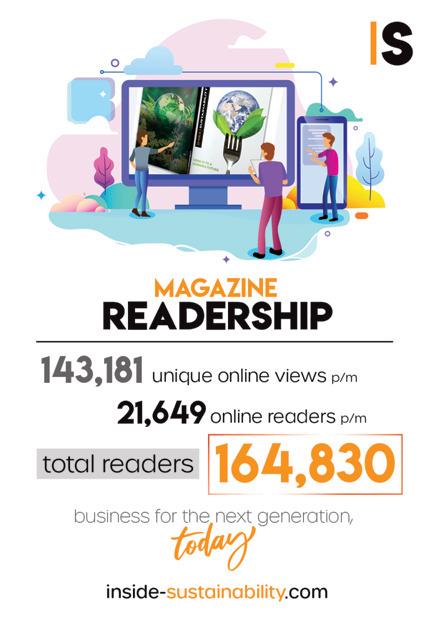
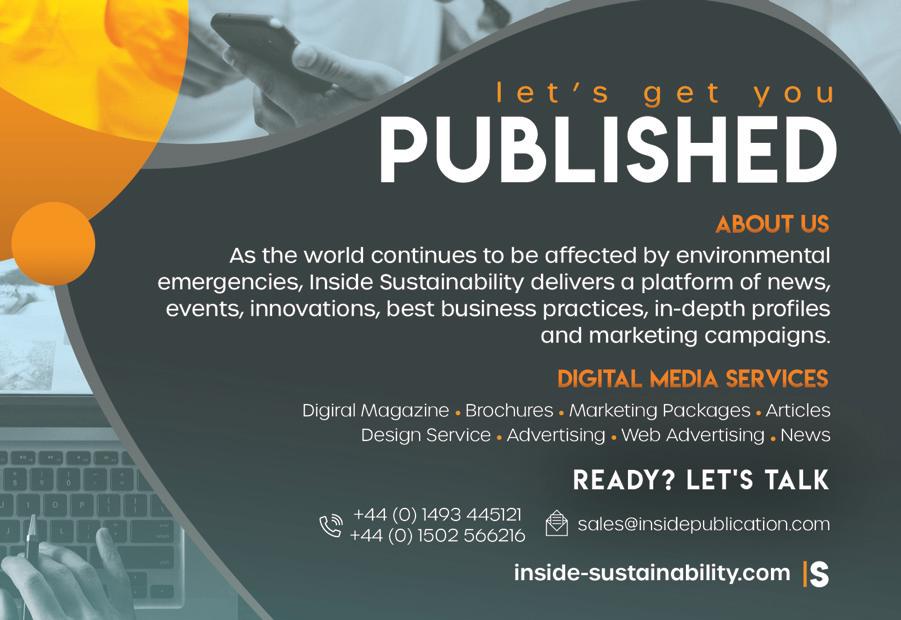
Martin Guitar, headquartered in Nazareth, Pennsylvania in the United States, manufactures a range of high-quality guitars and guitar strings. Founded in the early 19th century by Christian Frederick Martin, the company pioneered various manufacturing techniques and design philosophies that were so effective and successful that they quickly became industry standards.
Merging tradition & modernity
Martin Guitar’s main facility is also its headquarters, with an impressive footprint of 200,000 square feet, 146,000 of which is dedicated to manufacturing space and the remainder is offices and manufacturing support. Ten minutes from this facility lies the firm’s second property. Designed specifically for the company’s distribution needs, Martin Guitar occupies about half of this 200,000sqft facility, with the remainder leased out to others.
Finally, its third facility is located in Navojoa, Sonora, in Mexico. This factory is equipped to a similar level as its headquarters and is responsible for manufacturing. Across all three sites, the company employs about 1,000 staff.
Martin Guitar’s manufacturing philosophy is a fascinating blend of artisanal guitarmaking techniques - called luthiery - with ultra-modern machinery and capabilities, as Frank Untermyer, Director of Supply Chain Management, pointed out: “We strongly believe in continuous investment in the latest technology. We have machines that precisely cut a guitar’s dovetail neck joint, as well as CNC buffing machines. We also utilise automated technology to set a uniform fret height on the fingerboards. Our spray booth is robotic, and we use CNC for precision inlay work.”
The company’s high-tech production capabilities contrast with its deliberate, continued focus on traditional luthiery skills, especially for its higher-end products. Martin Guitar’s custom guitar workshop is said to be the largest of its kind in the music industry, boasting a large number of skilled luthiers.
“We use chisels to hand fit necks to bodies, and hand files to dress the frets on the fingerboards,” said Mr Untermyer. “This workshop cuts inlays and sprays the guitars all by hand. Our capabilities in the custom shop match and exceed those found anywhere else. It’s a focus area of ours and it continues to grow.”
Making sustainable music
Sustainability is a core value at Martin Guitar, especially given its inescapable reliance on timber and other natural resources for manufacturing its products. For that reason, the company places a high value on the wood that its uses while also ensuring that it is responsibly harvested from sustainable sources.
“Wood is the lifeblood of an acoustic guitar and so we need the tonewoods to exist for generations to come,” Mr Untermyer explained. “Responsible harvesting methods guarantee a high monetary value for those woods, discouraging wasteful usage of such precious resources.”
Martin Guitar developed an ecological policy as far back as 1990 which subsequently saw the company receive Forest Stewardship Council ® (FSC ® Chain of
Custody certification (License code FSCC008304). Consequently, the company strives to procure FSC-certified wood wherever possible. For example, the company sources mahogany for its guitar necks and bodies from a certified source in Guatemala, and its ebony for its fingerboards and bridges from a similar source in the Republic of the Congo. Additionally, the company utilises the services of a specialist third party to verify the legality of the woods that Martin Guitar procures, and in certain cases, the company dispatches its own teams into the forest to confirm the actual source of the wood. “We are passionate about ensuring the sustainability of the forests and specifi c species that we use,” said Mr Untermyer.
Martin Guitar also actively embraces listings on the appendices of the Conference of International Trade in Endangered Species (CITES) which fosters the legality and traceability of the tonewoods used in Martin Guitar manufacturing processes. To this end, Martin Guitar maintains close relations with the United States Fish & Wildlife Service –responsible for managing CITES in the United States – as well as many other CITES authorities all in addition to the Secretariat based in Geneva.
Reclaimed wood is another sustainable source for Martin Guitar. In Canada, the company routinely travels into the forests and disassembles old, disused logging bridges from which it produces guitar tops. Abandoned logs left behind on the forest floor are also fair game and to date, have gone into the production of 15,000 guitar tops without Martin Guitar having to cut down a single tree.
Chilling investments
Martin Guitar’s sustainability efforts extend to a substantial infrastructure investment to reduce its energy footprint. Several years ago, the company invested $8.85 million in a full retrofit of Martin Guitar’s Pennsylvania facility’s HVAC system. The new system now consists of three water-cooled chillers, while the heating system now includes three, low-temperature condensing boilers. This upgraded system reduced the company’s electrical and natural gas consumption by over 40% and 20% respectively, resulting in an annual cost reduction of $500,000.
Meanwhile, Martin Guitar partnered with guitar string manufacturer D’Addario to support that firm’s Playback world-leading string recycling program. With the aid of string recycling receptacles at music stores around the country, Playback has recycled over 10.5 million guitar strings.
Looking ahead, Martin Guitar is focused on continuing to innovate the guitar market just as it has done for over six generations; and so in closing, Mr Untermyer explained the company’s vision: “We will continue to set the benchmark for acoustic guitar design, quality and playability. We hope that the instruments that we build, and the music that is made on them, will continue to inspire people. Music is the universal language; it brings people together. We need more people to live harmoniously . We all need more music.”








